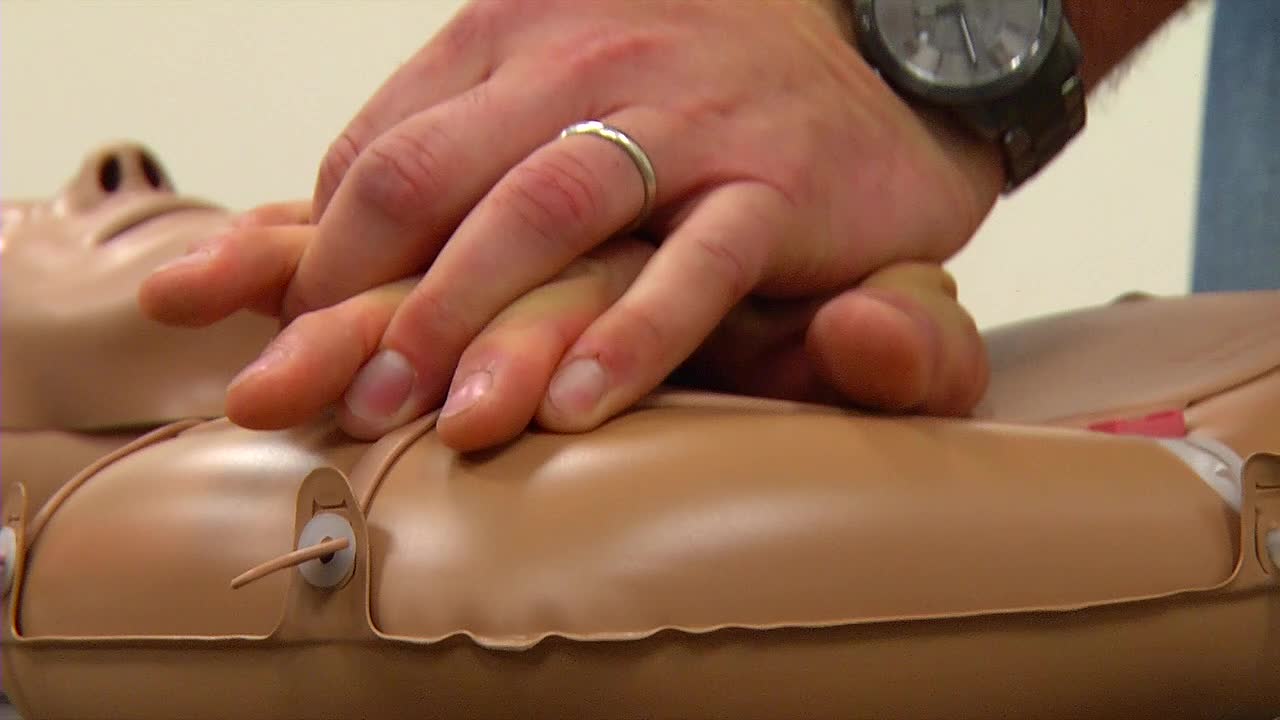‘Women need CPR too,’ heart association renews push to save more women’s lives
[anvplayer video=”5134184″ station=”998122″]
Fewer people are willing to save women that have collapsed in public because of a cardiac event, according to a 2017 study.
This unfortunate reality has been known for years, but the American Heart Association (AHA) recently renewed its push to improve it.
Nineteen-thousand people who had a cardiac event were part of the 2017 study surrounding this issue. The results found only 39% of women received cardiopulmonary resuscitation (CPR) from bystanders in public compared to 45% of men.
“I think it’s just a mental mindset of fear of not knowing if it’s appropriate, when it’s appropriate,” Robin Germany, board member of the AHA in Minnesota, said about some of the fears people have with giving a woman CPR.
According to a 2016 study surrounding hands-only CPR, the AHA found some of the top reasons people did not perform CPR when they had an opportunity to do so are based on these main concerns:
- 31% – afraid of legal ramifications
- 28% – skills are not up-to-date
- 28% – afraid of hurting the person
The renewed push from the AHA comes in a recently released video highlighting what to do if a woman collapses.

The video focuses on the two steps people should do right away:
- Call 911 and get an automated defibrillator (AED)
- Start hands-only CPR
“I think this whole campaign is really there to try to raise awareness that women need and deserve just as much CPR as anybody,” Germany said.
Germany adds easing fears of getting accused of assault if people perform CPR on a woman is another big part of this campaign.
“I’m not a cultural expert, but having taken care of people from many different backgrounds and religions [I know] that if your goal is there to help that person, that their family, their neighbors are going to be very forgiving,” Germany said. Germany noted Minnesota’s Good Samaritan law would protect people against legal ramifications in such situations.
According to the AHA, every state has ‘Good Samaritan’ laws that offer legal protection to people who give reasonable assistance to those who they believe to be injured or in peril.
A message from someone who was brought back to life thanks to a proper response is simple: doing something is better than doing nothing.
“It’s normal to be worried about what’s going to happen to you if you take action, but if you don’t take action, that’s somebody’s mother or daughter, or sister or girlfriend that’s dying, and I think that’s going to stick with you forever,” Jaimie Pederson, a cardiac survivor, said.
Pederson collapsed while at work when she was 18 years old. No one stepped up to help her until first responders arrived — Pederson was dead for seven minutes.
“A woman is a person — it’s not about if it’s a man or a woman, they need help, and you can help them and you should, Pederson said.
Click here to learn how to respond correctly to a person experiencing a cardiac event.